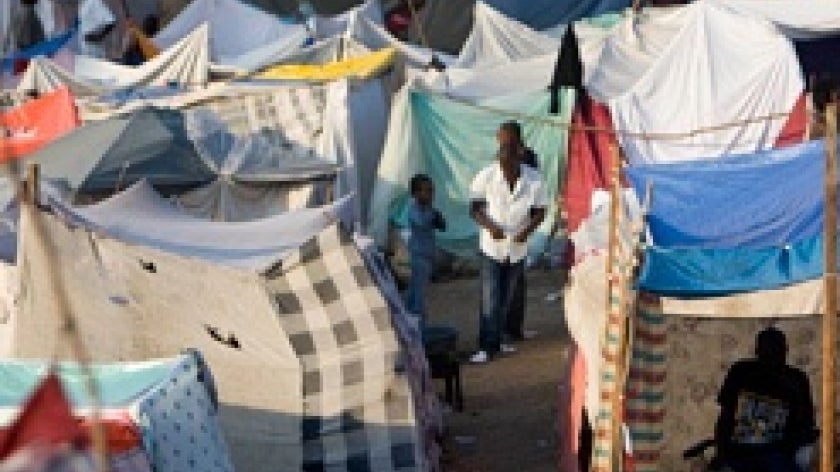
20 JANUARY2010 | Washington, DC - In concert with sister agencies, the Global Environment Facility has approved an emergency project to help restore power lost from the Port au Prince earthquake and assist relief workers as they look to supply critical medical needs to survivors.
The $3 million effort, co-financed with matching grants from the Inter-American Development Bank and the World Bank Group, will use energy from the sun to produce clean electricity for medical centers, vaccine refrigeration, and other critical relief efforts. Hand-cranked lanterns will also be distributed in refugee camps and residential areas that are in the dark a week after a 7.0 magnitude temblor destroyed most of the electricity grid and local power plants.
The demand for off the grid electricity is immense--about three million displaced people are without power and it may take as much as two years to restore the infrastructure to pre-earthquake conditions, agency officials say.
The project’s support will be concentrated in Port-au-Prince although if necessary, other severely affected areas for which information is not yet available may be included in the effort.
“By supporting local authorities as they look to supply sustainable and accessible energy at this time of crisis, this project will help provide basic services as well as boost clean energy sources, “ said Monique Barbut, CEO and Chairperson of the GEF.
As part of the rebuilding process, the GEF’s two implementing agencies, the IDB and the WBG, have established an energy team to coordinate emergency response activities in Haiti’s energy sector. This project is part of both institutions’ initial response for assessing the energy sector’s reconstruction and recovery needs in the earthquake area, particularly for power generation and lighting. Results of this project will in the short and medium term help multilateral institutions organize follow-up investment actions, project organizers said.
Along with the obvious humanitarian benefits of supplying off the grid electricity there is an environmental plus as well: Port au Prince now relies mainly on fossil fuel-based energy sources, and any substitution with renewable energy (in this case solar power) will generate carbon emission reductions. With the breakdown of the grid, past sources of renewable electricity such as the country’s hydropower plant, Peligre, are no longer available to local authorities so relief workers and survivors alike are now forced to rely exclusively on very inefficient fuel-based systems like small individual generators, kerosene lamps, candles, or even non-renewable biomass (i.e. wood fire cutting the last trees in the city).
###
For more information, contact Maureen Lorenzetti, spokesperson
Office: (202) 473 8131 Mobile (202) 352 3572